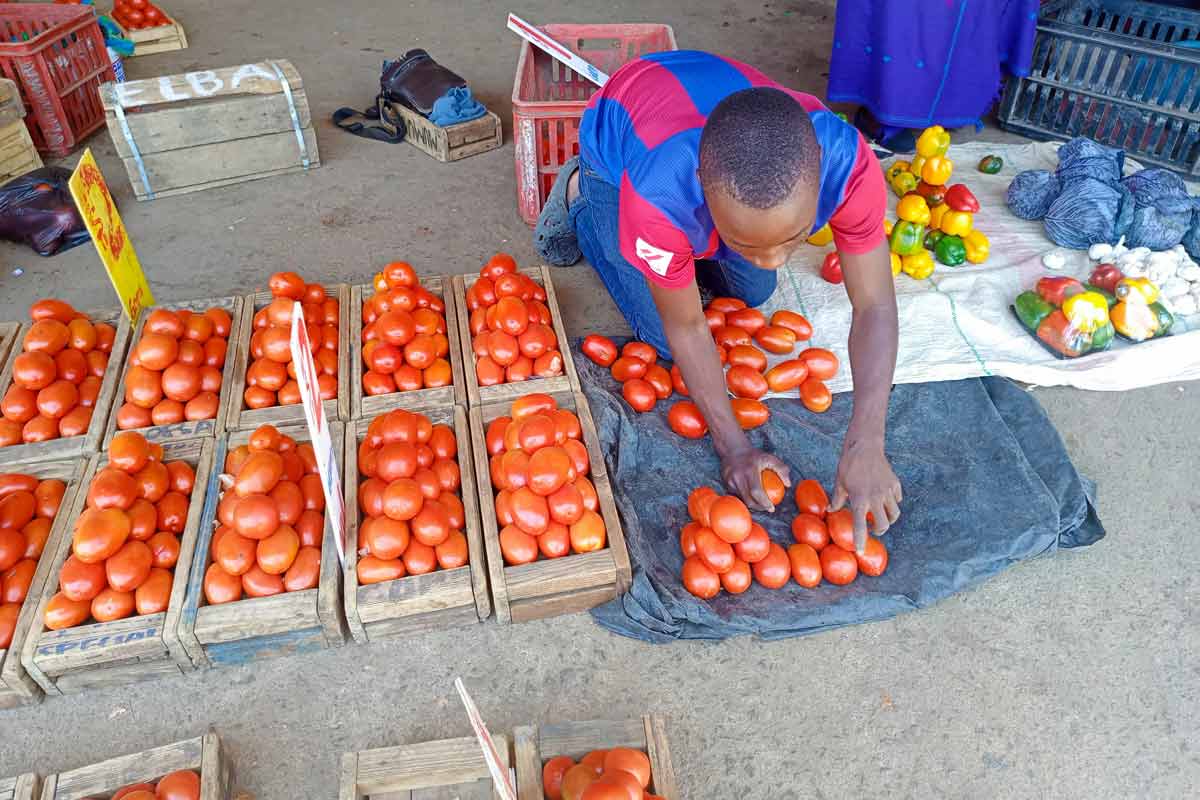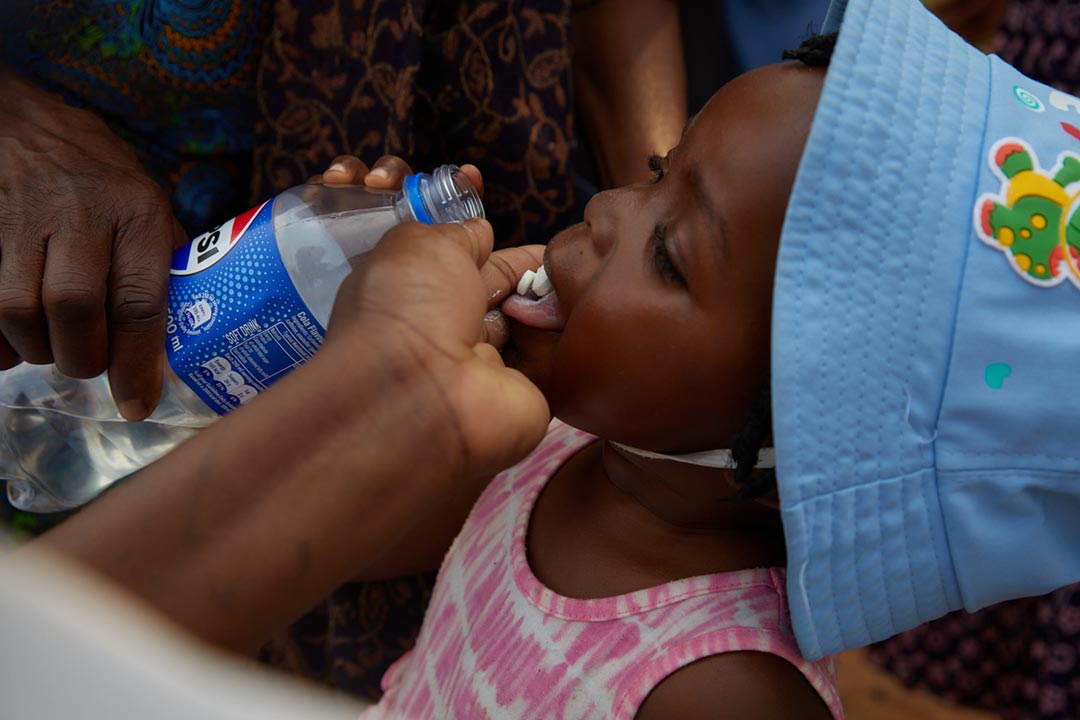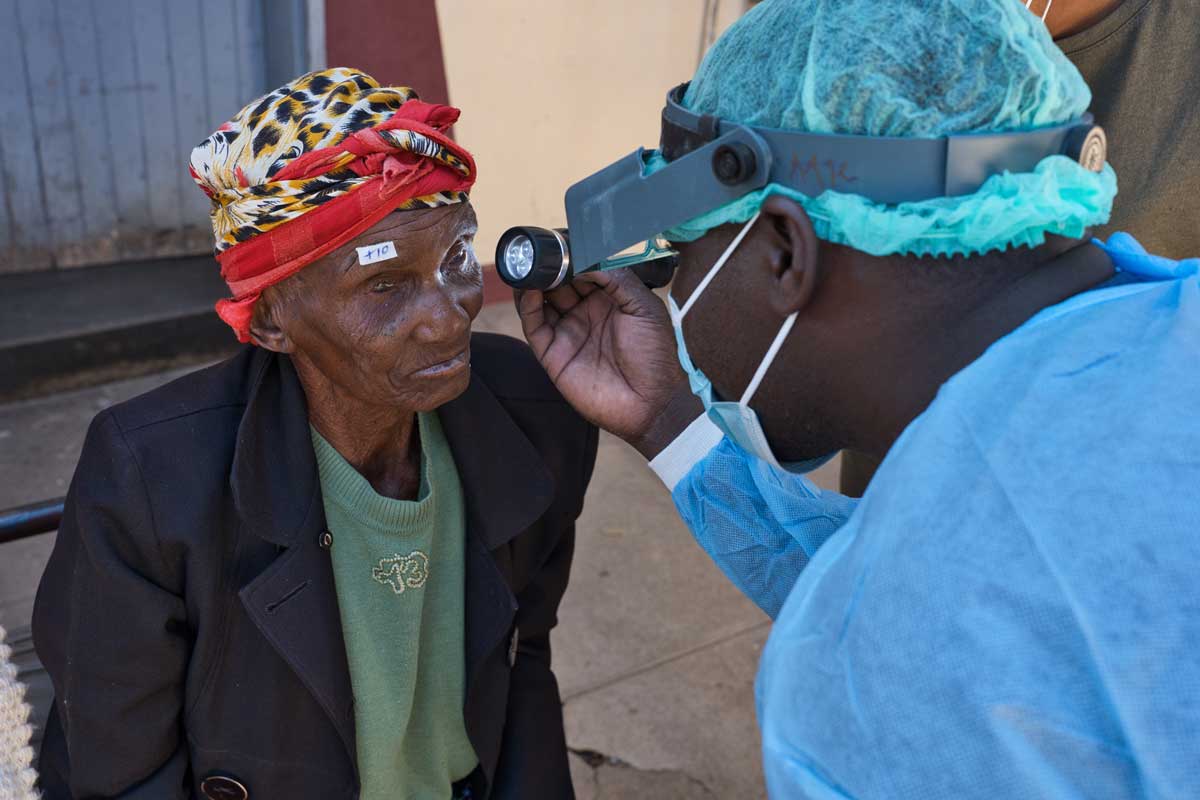In rural Zimbabwe, electric tricycles are saving lives
Igava Clinic has surpassed its vaccination targets using hambas, electric tricycles powered by renewable energy
- 20 March 2023
- 5 min read
- by Derick Matsengarwodzi
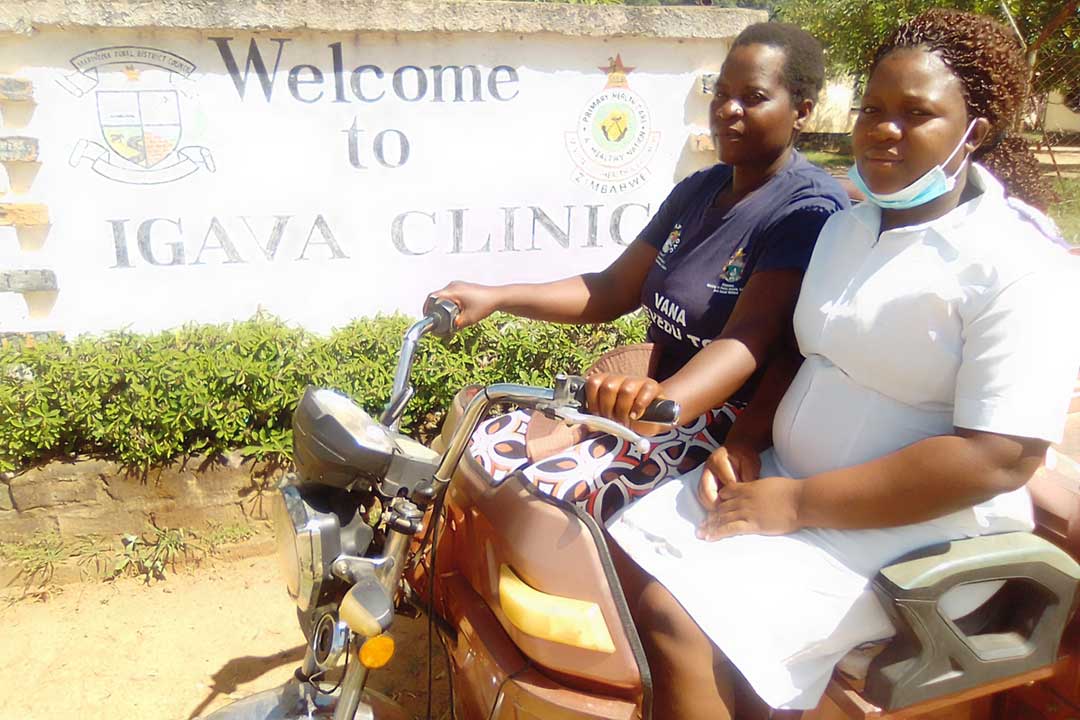
Margret Hali, 34, says she owes her life to an electric tricycle.
Last summer, the villager from Igava, 108km east of Harare, Zimbabwe, grew sick with malaria. At home alone, her condition worsened. Day after day, she lolled listlessly in the sun, desperate, but helpless.
A few days in, her rescuers arrived, riding a hamba: a three-wheeled cart powered by sustainably-produced electricity.
“With the hambas, we now bring the clinic closer to the community, carrying all relevant drugs, doing HIV testing and meeting all children who are due for, or who have missed, their vaccinations.”
– Tebbie Chidemo, acting sister-in-charge at Igava clinic
They were Igava Clinic staff, making routine rounds to check up on their patients. After a series of quick observations, they helped Hali into the truck-bed back of the vehicle.
"I was very sick, and not sure what would happen to me," Hali recalls.
The driver deftly steered the narrow hamba through the network of footpaths, aware of Hali's frail body, until they reached the wider gravel road, where the vehicle was able to accelerate safely. Soon at the clinic, Hali received the treatment that saved her.
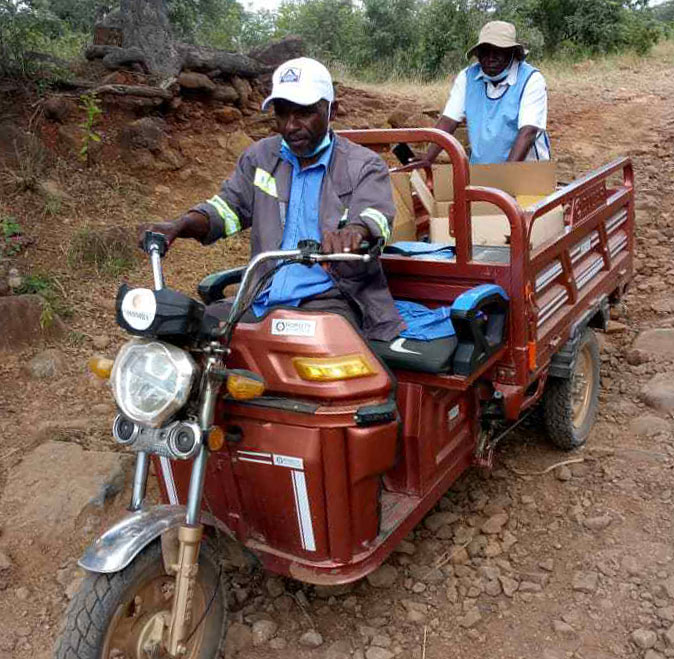
Credit: Tebbie Chidemo
A year later, she reflects on the experience. "Since the hambas were introduced in 2019, they have been very helpful to us," Hali says. "Before, we had problems getting reliable transport to the clinic."
Before the hambas arrived, travelling to Igava Clinic was complicated for the 6,900 villagers in its catchment area. Pregnant women found themselves particularly stuck. Due to the distance and the demands of time-bound work on the fields, many completely missed their routine check-ups and treatments.
But in 2019, a social enterprise called Mobility for Africa (MFA) launched the pilot of their e-tricycle scheme, targeting Zimbabwean women in business with the sustainably-powered, and robust utility vehicles. A group of pregnant women from Igava approached the company for help building an affordable off-grid transport solution.
"In 2019, three hambas are being used at the Igava Clinic, one by the staff and the other two by two village health workers serving communities within the Igava catchment area," said Wilson Mok, who handles health sector engagement at MFA. The hambas have been loaned, serviced and maintained by MFA technicians free of charge, he confirms.
Have you read?
Since then, the partnership has improved Igava Clinic's outreach programmes, according to Tebbie Chidemo, 42, the acting sister-in-charge at the health facility. "Our catchment area has four commercial farms, and people migrate a lot in search of work, so sometimes we used to miss our targets. After we received the hambas, we can now travel 22km away, further increasing our targets."
Previously, to cover all villages, an outreach would take eight days, but the hambas have reduced it to only two days. Now, the health staff can pick up HIV medication and deliver it to patients, reducing defaulters by 50%. Also, they transport four or five expectant mothers to the clinic for delivery each month, reducing home births.
Getting children protected with vaccinations has become easier too. In 2022, the Igava Clinic met, or exceeded their targets for polio and measles vaccination. HPV immunisation for girls shot up from just five in 2019 to 83 in 2021.
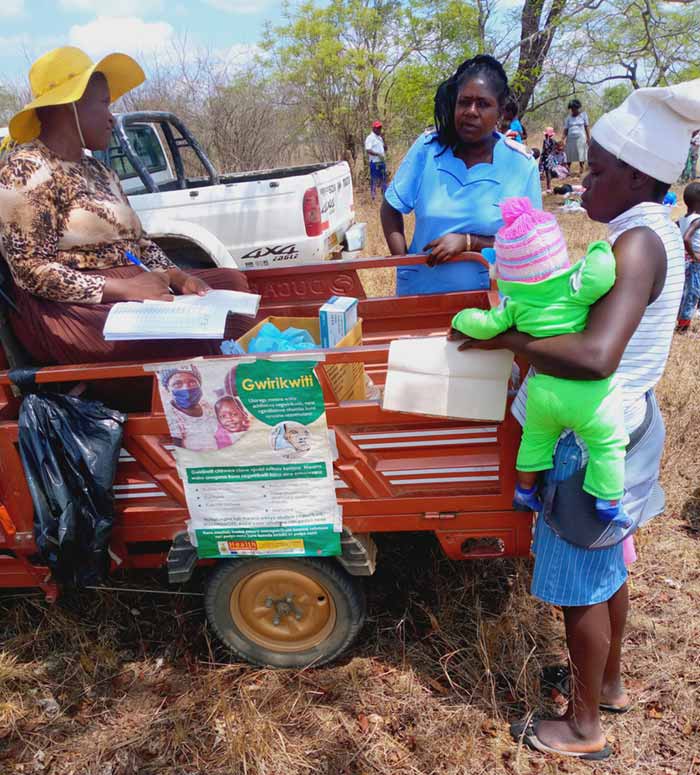
Credit: Tebbie Chidemo
"With the hambas, we now bring the clinic closer to the community, carrying all relevant drugs, doing HIV testing and meeting all children who are due for, or who have missed, their vaccinations," says Chidemo.
The outreach programmes have reduced queues at the clinic, and helped the region reach impressive COVID-19 vaccination rates: 96% for the first dose, and 66% for the second.
"For the Expanded Immunisation Programme (EPI) we have managed to surpass our yearly targets and coverage. Now, we can do home visits, going offroad using the hamba, including visiting some religious communities, who may need privacy," Chidemo says.
"In Wedza [district], there are a total of 47 hambas – 20 leased to purchase, 15 for transport and logistics, six for service providers and six for staff," says Fadzai Mavhuna, the MFA donor relations and investment consultant. "The tough, sturdy renewable-energy charged electric tricycles are charged by off-grid energy supplies, which can be backed up by on-grid power charging."
Josephine Nyevhe, 43, a village health worker, says, "I use the hamba to help many sick people, including pregnant women, with transport to the clinic. Also, I go to the villages to check on patients, investigate disease outbreaks and notify the clinic."
Before each vaccination outreach, Nyevhe rides the hamba deep into the villages, stopping to spread the word about dates and places, so recipients can make sure to be ready. "I travel into the villages to give health advice, to do monitoring, counselling and to mobilise people on forthcoming vaccination and immunisation programmes. Some of the elderly may forget to collect their medicine and I drive to the clinic to get it for them."
Beyond Igava, other rural communities are set to benefit from the hamba scheme, MFA's Mavhuna says. "We are going to expand to more rural sites in the next 18 months. A minimum of eight additional fleets of 50 hambas each for the current dairy model in Chipinge: 400 Hambas, 600 batteries and eight charging stations. We are going to expand to dairy farmers in Mashonaland East too."
On outreach days, the clinic staff load their equipment into the hamba. Inside the tricycle, the team chats jovially, occasionally disembarking when they approach a river. On arrival, they assemble their gear in the shade, to better keep the vaccines vials safe, and wait for the farm workers to down tools.
"With our own hambas, it has made our lives easier," says Edna Shayanewako, 34, who has worked at Igava clinic for four years. "We can now have weekly outreach health programmes and villagers know that we are coming, since we have our own transport. Recently, we got a bigger reliable battery and we can travel for about 100km before we recharge it."

